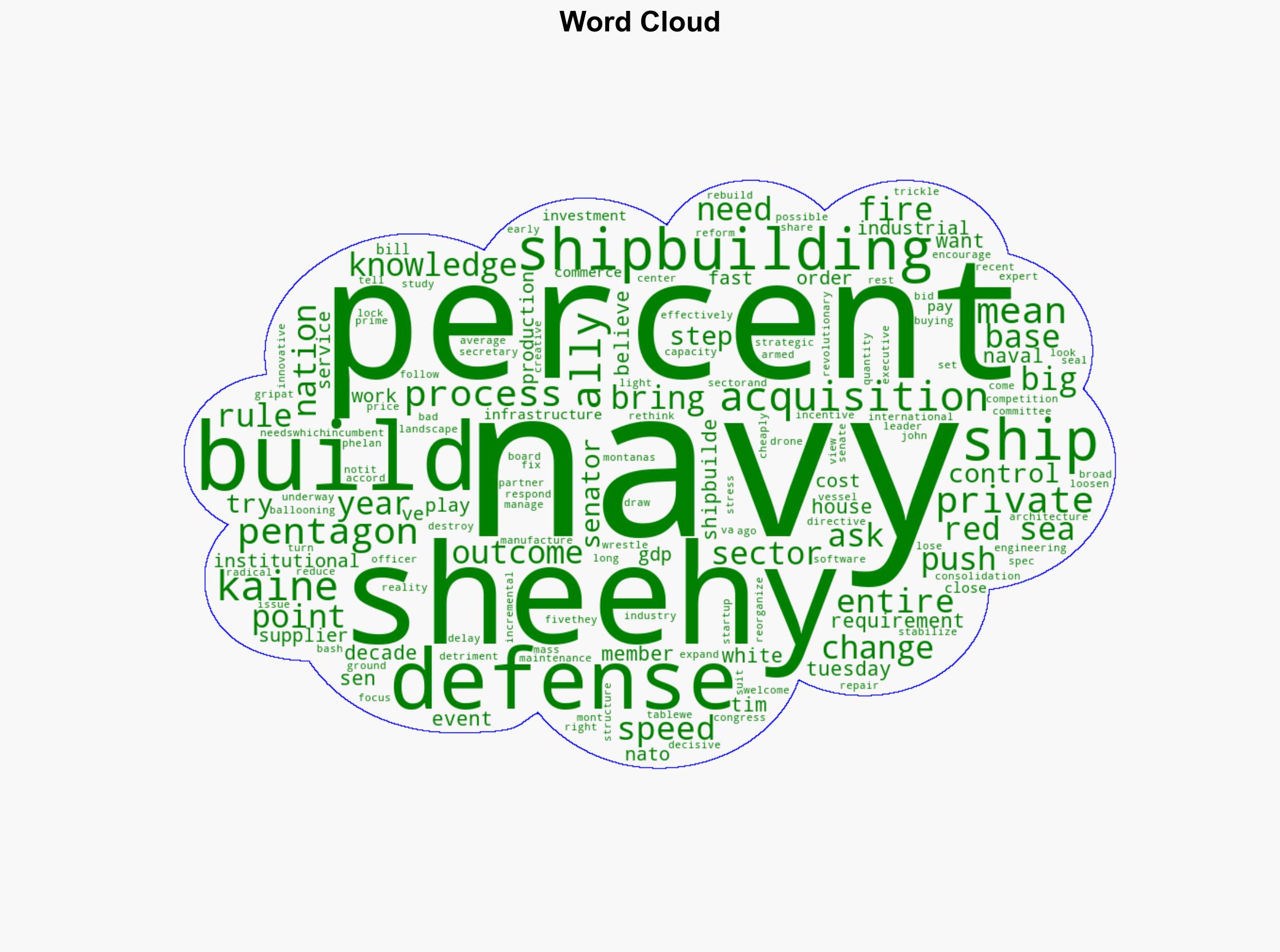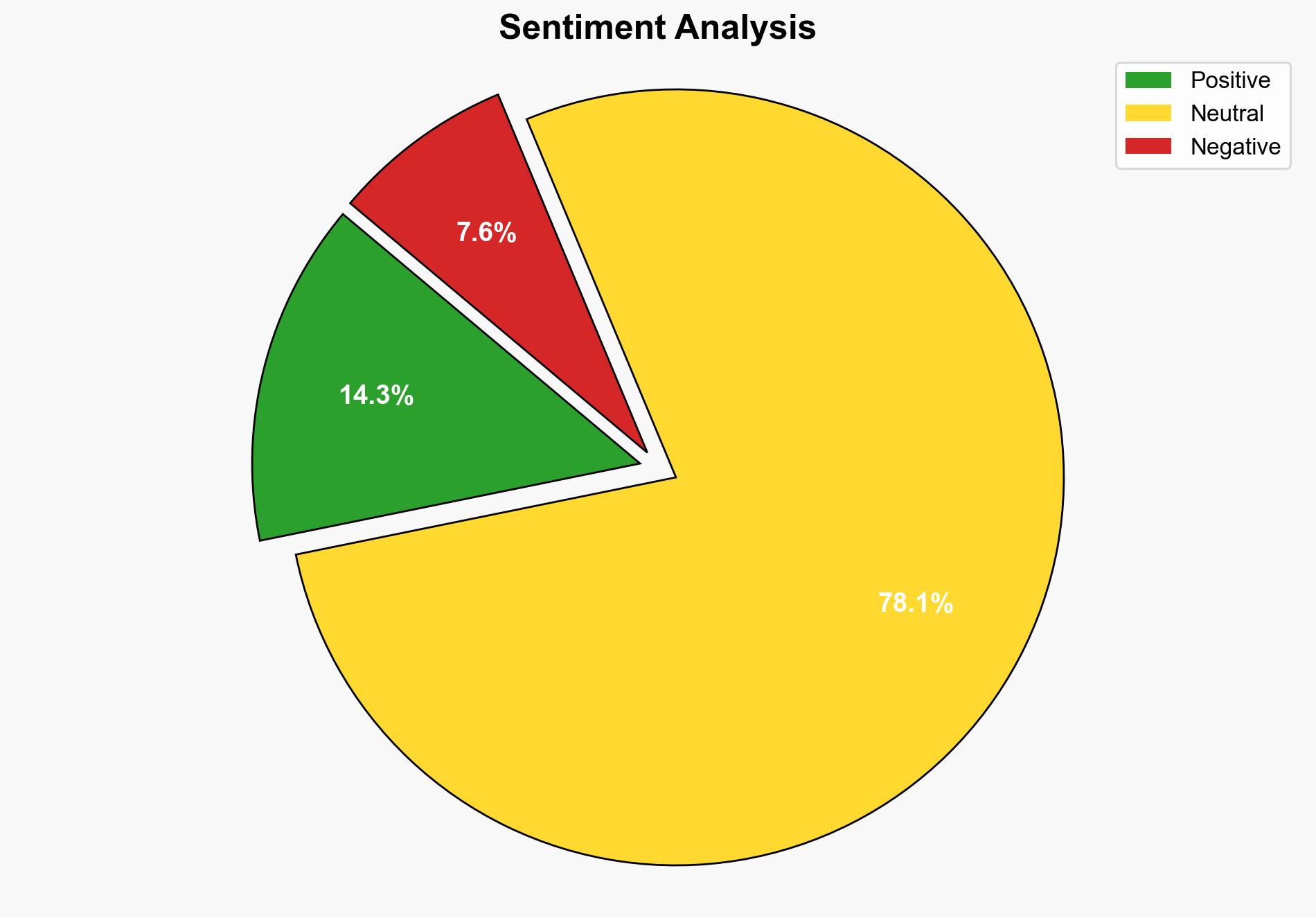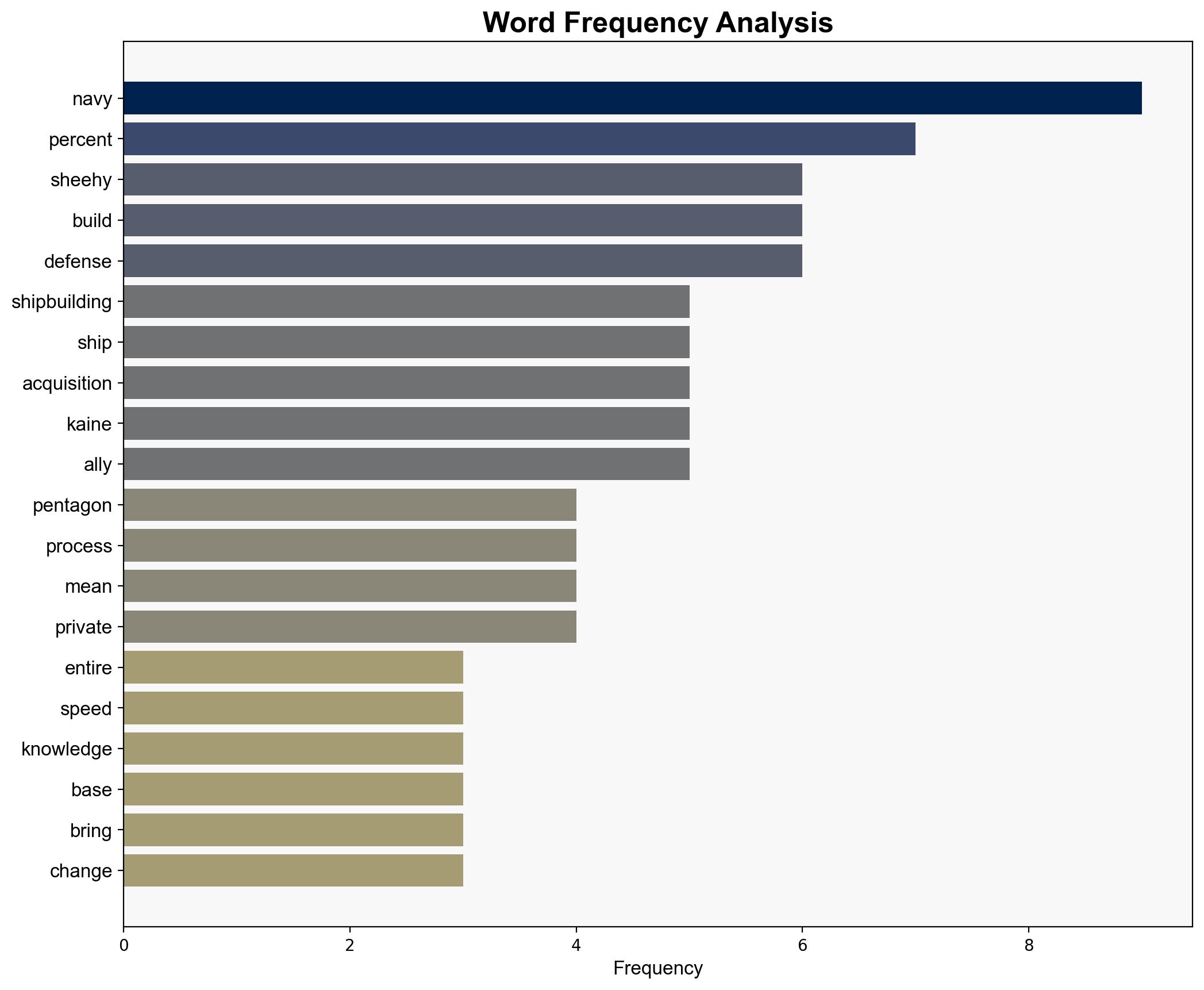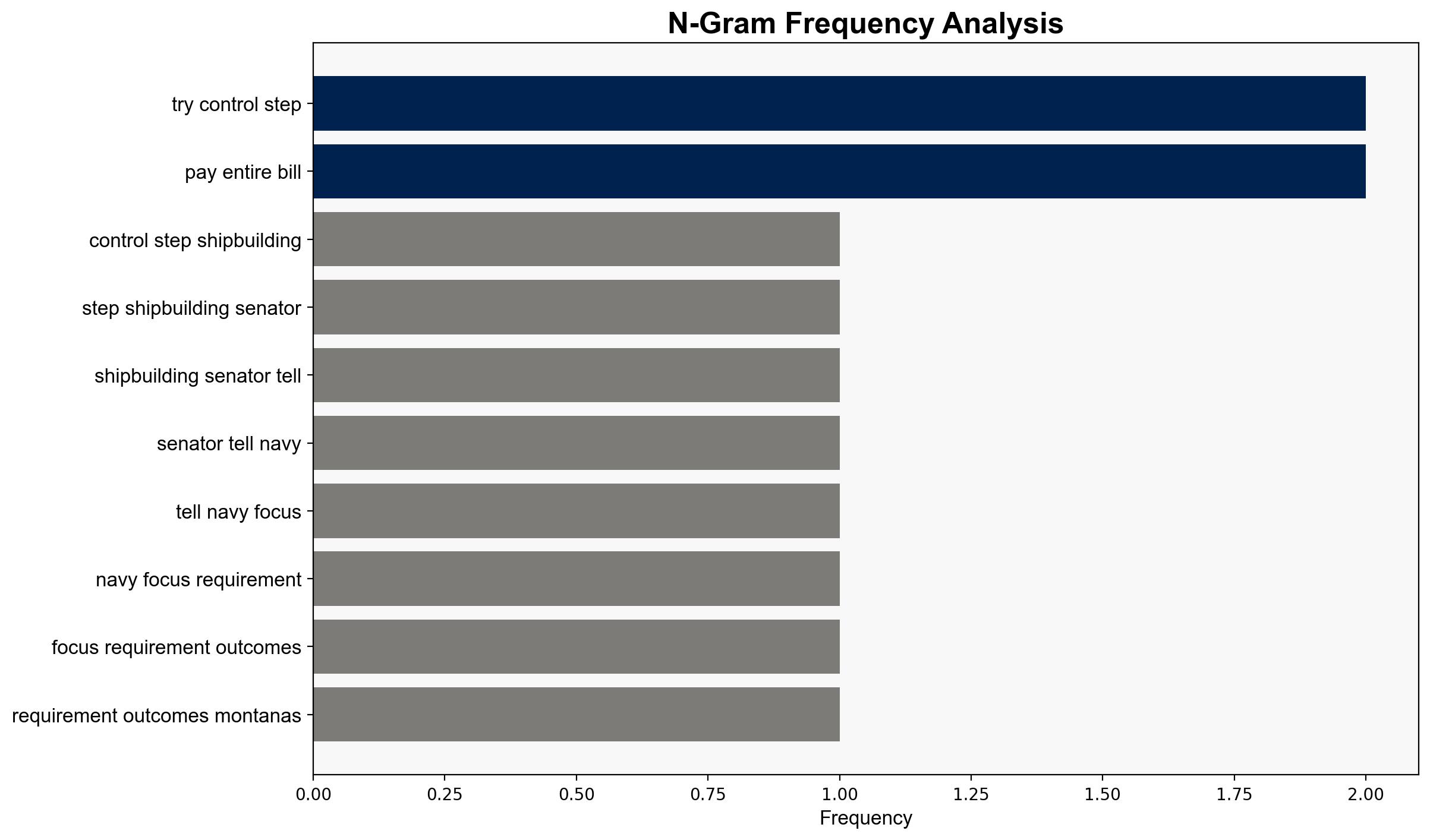Stop trying to control every step of shipbuilding senator tells Navy – Defense One
Published on: 2025-10-09
Intelligence Report: Stop trying to control every step of shipbuilding senator tells Navy – Defense One
1. BLUF (Bottom Line Up Front)
The most supported hypothesis is that decentralizing control over shipbuilding processes could enhance efficiency and reduce costs. This hypothesis is backed by the argument that excessive control has led to inefficiencies and delays. Confidence level: Moderate. Recommended action: Initiate a pilot program to test decentralized shipbuilding processes, while closely monitoring for potential risks and inefficiencies.
2. Competing Hypotheses
Hypothesis 1: Decentralizing control over shipbuilding will lead to increased efficiency and reduced costs. This is based on the argument that the current centralized control leads to inefficiencies and delays, as highlighted by Senator Tim Sheehy.
Hypothesis 2: Maintaining centralized control is necessary to ensure quality and compliance with strategic requirements. This hypothesis suggests that decentralization could lead to inconsistencies and potential security risks.
3. Key Assumptions and Red Flags
Assumptions:
– Hypothesis 1 assumes that private sector innovation can be effectively integrated into military shipbuilding without compromising quality.
– Hypothesis 2 assumes that current inefficiencies are primarily due to external factors, not the centralized control itself.
Red Flags:
– Lack of empirical data supporting the effectiveness of decentralization in military contexts.
– Potential bias in Senator Sheehy’s statements due to political motivations.
4. Implications and Strategic Risks
Decentralizing shipbuilding could lead to faster production and cost savings, but it also risks quality control issues and potential security vulnerabilities. If not managed properly, this could escalate into broader strategic risks, such as compromised naval capabilities or increased dependency on private contractors. Economically, this shift could impact defense budgets and industrial base dynamics.
5. Recommendations and Outlook
- Conduct a controlled pilot program to assess the impact of decentralization on shipbuilding efficiency and quality.
- Develop a robust oversight mechanism to ensure compliance with strategic requirements.
- Scenario Projections:
- Best Case: Decentralization leads to significant cost savings and faster ship production.
- Worst Case: Quality control issues lead to strategic vulnerabilities.
- Most Likely: Mixed results with some efficiency gains but challenges in maintaining quality.
6. Key Individuals and Entities
– Tim Sheehy
– John Phelan
– Tim Kaine
7. Thematic Tags
national security threats, defense acquisition, military efficiency, shipbuilding reform




